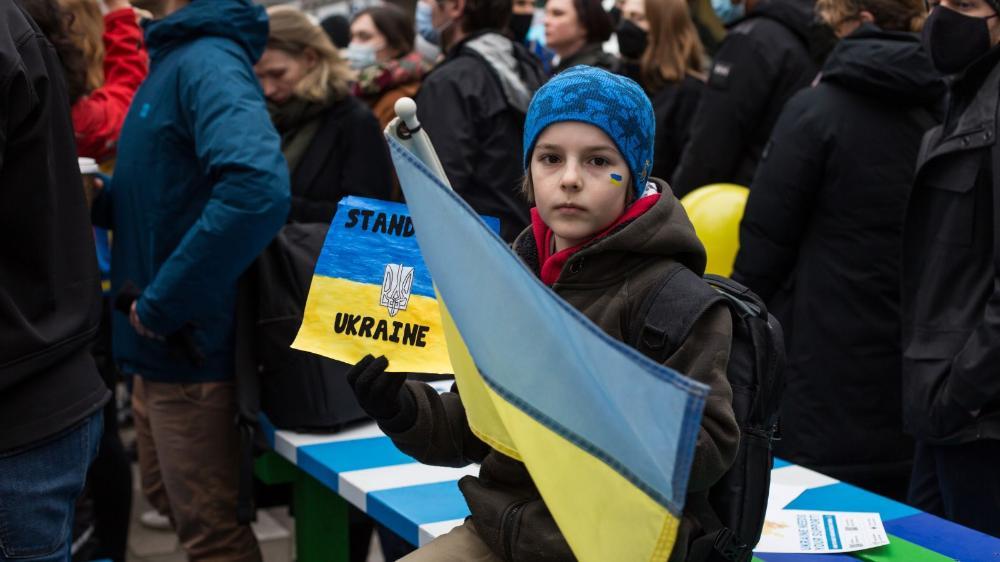October 16, 2023
Why Australia must condemn Russia’s illegal transfers and deportation of children
Associate Professor Phil Orchard says Russia’s deportation campaign is a clear violation of international law
University of Wollongong (UOW) Associate Professor Phil Orchard wants Australia to push for sanctions and a United Nations General Assembly resolution condemning Russia’s campaign of deportations and transfers of children.
In a new article for Australian Foreign Affairs Associate Professor Orchard, an international relations expert from the School of Humanities and Social Inquiry, argues that Australia should condemn Russia’s illegal transfers and deportations.
“It’s a growing problem and at the end of August this year the Ukrainian government reported that at least 19,546 children had been deported into Russia,” Associate Professor Orchard said.
“The Organization for Security and Co-operation in Europe has found that many of these so-called evacuations were non-consensual and, in certain cases, war crimes.”
Associate Professor Orchard said these children are only part of a much larger forced movement of Ukrainians from occupied territory into Russia. In July 2022, the United States estimated that Russian authorities had forcibly deported between 900,000 and 1.6 million Ukrainians, including 260,000 children.
“These people are not just being forcibly moved but are put through a traumatic ‘filtration’ process by Russian authorities,” Associate Professor Orchard said.
“It’s common for parents and children to be separated and victims of the process have said they were subject to beatings and torture that might last weeks.
“Those who pass are then transported to Russia, but it’s much worse for those who do not. These people, numbering in the thousands, are detained in facilities inside Russian-controlled Donetsk and there have been unconfirmed reports of murders.”
Associate Professor Orchard said Russia’s deportation campaign is a clear violation of international law – not only war crimes, but also crimes against humanity – and the transfer of children is explicitly defined as a form of genocide under the 1948 Genocide Convention.
“Russia wields power of veto in the United Nations Security Council, so the council has been unable to act,” Professor Orchard said.
“However, there are other options available for states, including Australia, that want to try and prevent and punish these atrocities.”
Associate Professor Orchard said Australia can take action through two steps. The first is at the domestic level. In December 2021, Australia amended it Autonomous Sanctions Act to allow individuals to be sanctioned for serious violations of human rights. Such restrictions are widely referred to as Magnitsky laws, named for a Russian auditor, Sergei Magnitsky, who died in prison in Russia for exposing government misconduct and corruption.
“While Australia has applied Magnitsky sanctions against Russians involved in the death of Magnitsky and in the attempted assassination in 2020 of Russian opposition leader Alexei Navalny, we have not yet used them against those Russians involved in forcible deportations or in wider rights violations in Ukraine,” Associate Professor Orchard said.
“Australia could not only act under domestic law to target people involved in the deportations and transfers, but also coordinate this action with other states – such as Canada and the United Kingdom – that have passed Magnitsky laws.”
The second step is to push for a United Nations General Assembly resolution condemning Russia’s campaign of deportations and transfers of children.
“The General Assembly has been quite active on the Ukraine War and has passed six resolutions against Russia,” Associate Professor Orchard said.
“This includes a demand that Russian forces withdraw from Ukraine and a statement that Russia’s attempts to annex four Ukrainian regions had no validity. Resolutions have also focused on the need to protect civilians and condemned violations of human rights.
“Australia can propose a resolution by itself, but given the widespread concerns over Russia’s conduct a better step would be for our Permanent Mission to the United Nations to first line up a wide range of co-sponsors, particularly from the Global South.”
While Associate Professor Orchard acknowledges these may seem like small steps that are unlikely to cause Russia to immediately stop its illegal campaign, they can still have significant effects.
“They would raise the profile of the issue and might undermine Russia’s attempts to avoid criticism,” Associate Professor Orchard said.
“Action at the General Assembly reinforces the strong global outrage against Russia and Australia’s voice would play an important role with respect to the Global South and particularly the Asia-Pacific.
“And at the end of the day we really need to do all that we can to return these children to their distraught parents.”
